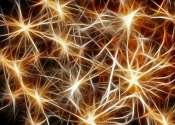New methods could help researchers watch neurons compute
Since the 1950s at least, researchers have speculated that the brain is a kind of computer in which neurons make up complex circuits that perform untold numbers of calculations every second. Decades later, neuroscientists ...
Dec 13, 2019
0
368









